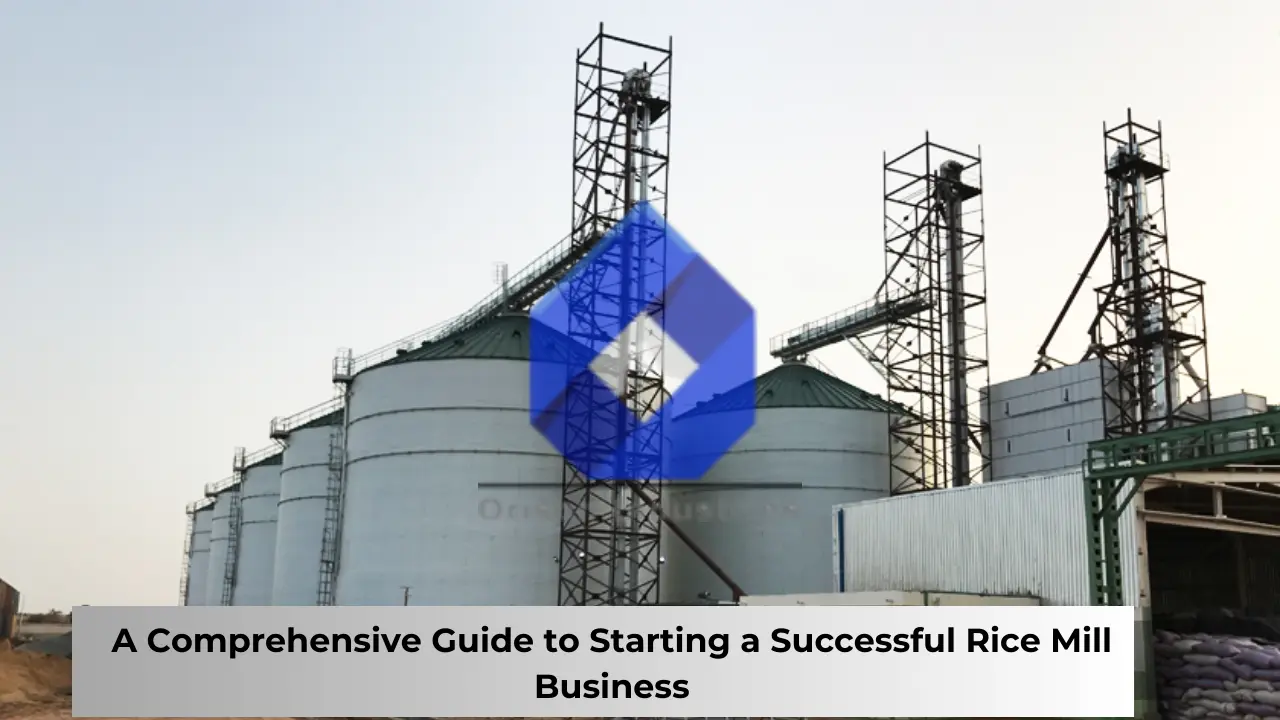In this world rice is one of the most crucial staple foods, especially in Asia, where it is a dietary essential. With the ever-growing demand for rice, establishing a rice mill business can be a profitable venture. However, to ensure success, proper planning and execution are required. In this comprehensive guide, we will walk you through everything you need to know about starting and managing a successful rice mill business.
Read More: Hopper Bottom Silo vs Flat Bottom Silo: Understanding the Differences
Understanding the Rice Mill Industry
- Market Demand: The demand for rice is consistently rising due to population growth and dietary preferences. The rice milling industry offers immense opportunities for entrepreneurs, as both raw and processed rice have high commercial value.
- Types of Rice Mills: There are different types of rice mills based on their operation and production capacity:
Small-Scale Rice Mills: Ideal for local production and small businesses.
Medium-Scale Rice Mills: Suitable for moderate production needs and supplying to local markets.
Large-Scale or Fully Automated Rice Mills: These involve advanced machinery and produce rice in large quantities for domestic and international markets.
Rice Milling Business Plan
A rice mill business plan should include a location search, license and registration information, machinery and raw material requirements, and market research. To start a successful rice milling business, it is crucial to have a well-planned and comprehensive business plan. A good rice milling business plan should include the market analysis, financial projections, production process, marketing strategy and management structure.
Steps to Start a Rice Mill Business
To start a rice mill business, you need to: conduct thorough market research, create a business plan, choose a right location, obtain necessary licenses and permits, Procure Quality Machinery and Equipment, invest in milling equipment, source raw materials (paddy), set up the processing facility, hire skilled staff, develop a marketing strategy, and comply with food safety regulations; key aspects such as registering your business, acquiring a FSSAI license, and ensuring proper quality control throughout the milling process.
Rice Mill Equipment
Rice mill equipment refers to a set of machinery used in a rice mill to process raw paddy (unmilled rice) into refined white rice by cleaning it from impurities, removing the husk, separating broken grains, and polishing the final product, including machines like paddy cleaners, rice hullers, paddy separators, rice polishers, color sorters, and storage silos.
Rice Mill Feasibility Study
A Rice Mill Feasibility Study is an analysis conducted to determine the viability and potential profitability of starting a rice milling business in a specific location, considering factors like market demand for different rice varieties, available paddy supply, production costs, competition, necessary equipment, regulatory requirements, and potential risks, before making a significant investment in setting up a rice mill operation.
Challenges in the Rice Mill Business and How to Overcome Them
The rice mill business faces challenges related to raw material cost fluctuations, quality control, market competition, regulatory compliance, technology updates, and managing waste disposal, which can be overcome through strategic sourcing, advanced milling technology, quality checks, efficient logistics, market research, and environmentally friendly practices.
Key Challenges in Rice Milling:
- Raw Material Cost Volatility: Paddy price fluctuations can significantly impact profit margins.
- Quality Control Issues: Maintaining consistent rice quality due to variations in paddy quality, improper harvesting, or storage.
- Market Competition: Intense competition from established players, especially in terms of price and product differentiation
- Regulatory Compliance: Navigating complex food safety and environmental regulations
- Outdated Technology: Using old milling machinery leading to high energy consumption and lower efficiency
- Waste Management: Disposal of milling byproducts like bran and broken rice
- Logistics and Distribution: Efficiently managing the transportation and delivery of milled rice
Strategies to Overcome Challenges:
- Strategic Sourcing: Secure long-term contracts with reliable paddy suppliers to stabilize costs. Collaborate with farmers to improve paddy quality through training and better cultivation practices.
- Advanced Milling Technology: Invest in modern rice milling equipment with features like color sorters, automated cleaning systems, and energy-efficient designs. Implement technology to minimize broken rice and optimize rice quality.
- Quality Assurance: Conduct rigorous quality checks throughout the milling process, including moisture content and grain size analysis. Implement strict quality control protocols to ensure consistent product quality.
- Market Research and Diversification: Identify market trends and consumer preferences to develop targeted products. Explore value-added rice products like parboiled rice, basmati, or specialty blends to enhance market reach
- Regulatory Compliance: Stay updated on relevant food safety regulations and implement necessary quality control measures. Consult with industry experts to ensure compliance with environmental regulations
- Efficient Logistics: Optimize storage facilities to prevent grain spoilage. Establish strong distribution networks to reach target markets effectively
- Waste Management: Explore options to utilize rice byproducts like bran for animal feed or other value-added products. Implement environmentally friendly waste disposal practices
- Training and Skill Development: Train employees on proper operation and maintenance of milling equipment. Develop expertise in quality control and market analysis
Choose India’s Best Rice Milling Plant Manufacturer
Starting a successful rice mill business requires careful planning, investment, and execution. By understanding the market, choosing the right equipment, implementing effective marketing strategies, and maintaining quality control, you can build a profitable rice milling enterprise. With continuous innovation and adaptation to industry trends, your rice mill business can grow and thrive in the competitive market.
If you are looking for reliable equipment and expert guidance to start your rice mill business, Orison Industries is here to help. Get in touch with us today to explore high-quality rice milling solutions tailored to your needs.


